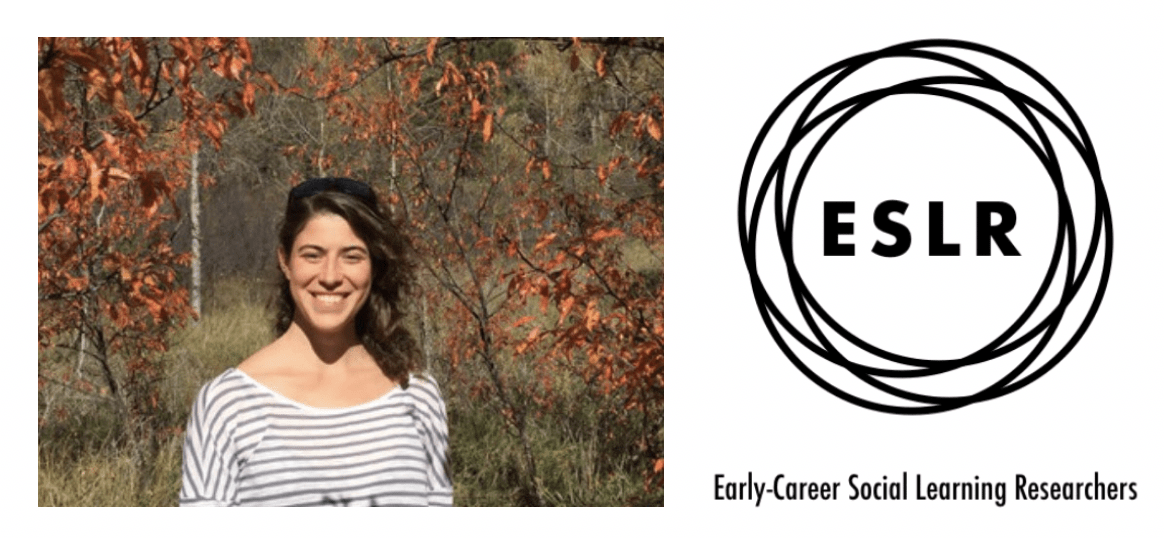Faces of ESLR: Alba Motes-Rodrigo
Our new series will highlight the work of different ESLR society members. Today, we hear from Alba Motes-Rodrigo, a PhD student at the University of Tübingen, about her work.
Early hominin technologies are considered by some to be culture-dependent traits. This assumption implies that these early tool use and tool making behaviors could not have been produced as individual reinnovations but would have required the observation of another individual. According to this view, high fidelity social learning, which leads to cumulative culture, underlies early hominin technology as in the case of modern human culture. Nevertheless, a more parsimonious explanation of the learning mechanisms behind the early hominin technologies could be derived from great apes. Ape cultures include different tool use behaviors, which in some cases can be individually reinnovated and do not rely on social learning to emerge. To test which model (modern human or great ape) accounts best for early hominin technologies, I study all four species of great apes (chimpanzees, bonobos, orangutans and gorillas) in captivity on tasks that simulate early hominin technological behaviors.
Among others, my thesis focuses on the investigation of stone-based technologies, the use of bone and stick tools and the limitations of chimpanzee imitative capacities. These experiments will hopefully provide new data on the learning mechanisms underlying the acquisition of early hominin technological behaviors and will help better understand the emergence of human culture.
Alba previously featured in our ‘Pitch to Publication’ series, discussing her research on chimpanzee extractive foraging using excavating tools.
